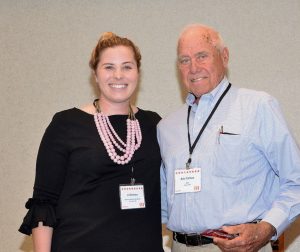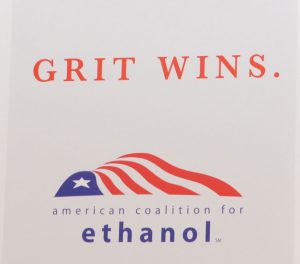 National Corn Growers Association (NCGA) interim CEO Jon Doggett and CHS Director of Global Trading Max Thomasson explored the impact of current trade negotiations and tariff wars on the global market for corn and ethanol during a panel at last week’s American Coalition for Ethanol (ACE) conference in Minneapolis.
National Corn Growers Association (NCGA) interim CEO Jon Doggett and CHS Director of Global Trading Max Thomasson explored the impact of current trade negotiations and tariff wars on the global market for corn and ethanol during a panel at last week’s American Coalition for Ethanol (ACE) conference in Minneapolis.
Doggett drove home the point that if it was President Clinton in the White House rather than Donald Trump, people might be viewing the trade decisions made over the past 18 months differently. “We can’t let people have a bye just because they have an R after their name,” said Doggett. “If Hillary Clinton had done all that, we’d be talking that I word right now.”
Thomasson talked about how global demand for U.S. ethanol continues to grow, driven by mandates, and will continue to grow. “Consumption for the first time in a while is outpacing production, which is a good thing,” said Thomasson.
Listen to comments from both here:
ACE18 Exports panel
In this interview, Doggett talks about the trade situation, as well as his thoughts on Acting EPA Administrator Andrew Wheeler and what it will take to please oil refiners so E15 can be approved year round.
Interview with Jon Doggett, NCGA














